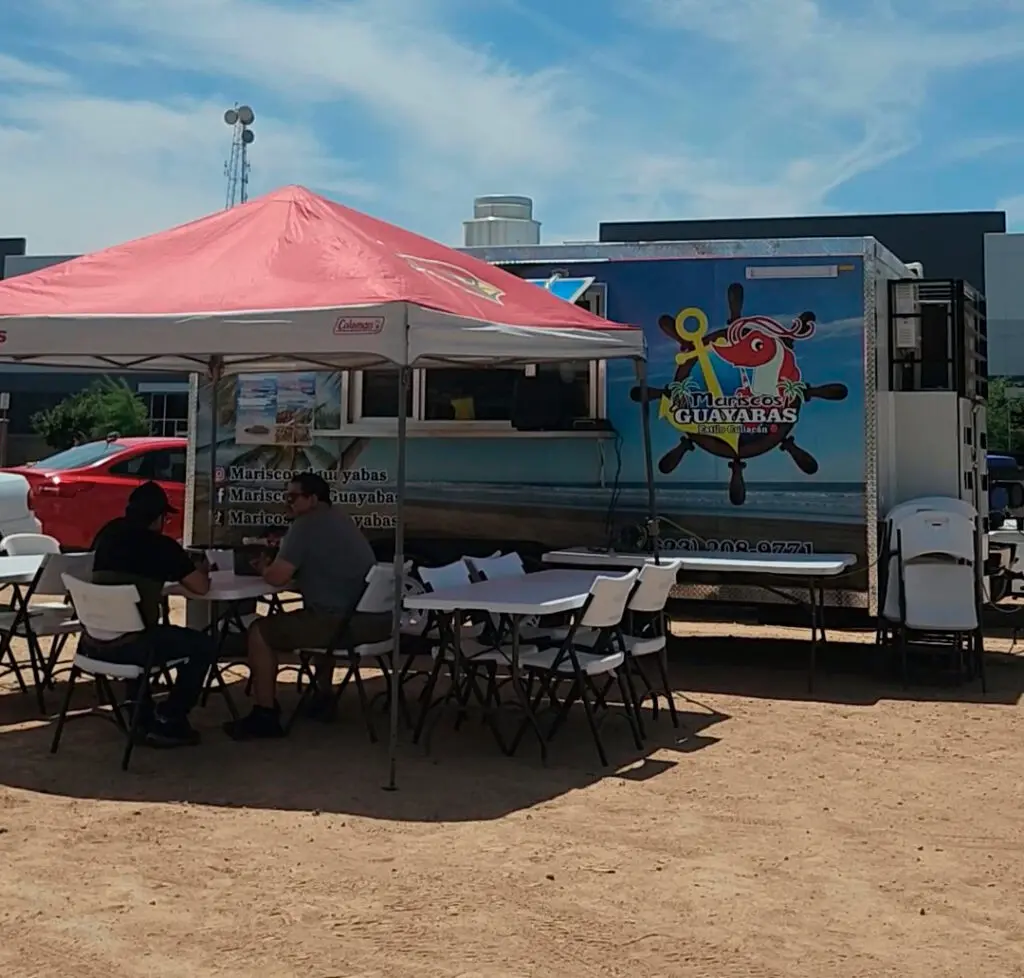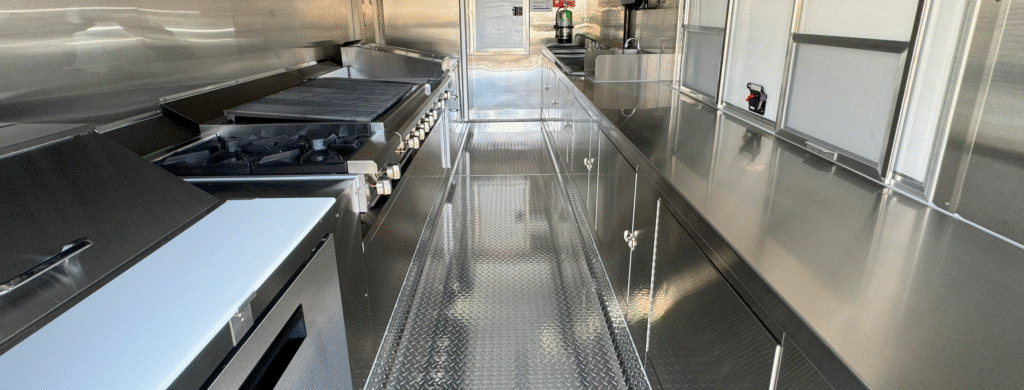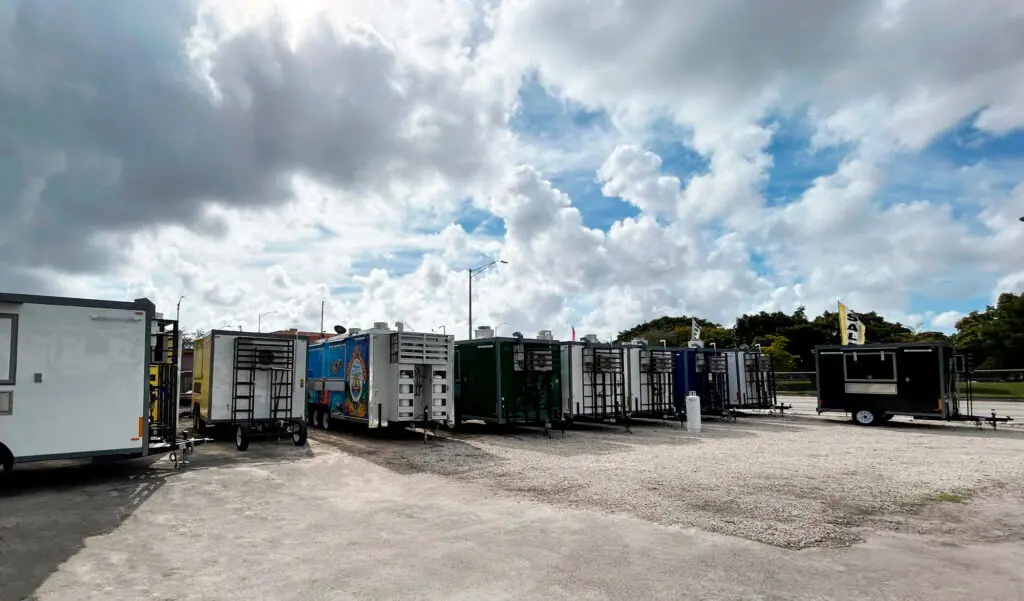What Do I Need to Start a Food Truck?

What Do I Need to Start a Food Truck?
Food trucks are a popular business in the U.S. because they’re easy to move, creative, and cost less to start. But if you’re asking yourself, what do I need to start a food truck, the answer goes far beyond just buying a vehicle. This step-by-step guide covers everything from legal rules to daily tasks to help you successfully start your food truck business.
1. A Clear Business Plan
Before making any investments, you need a solid business plan. This will help you run your business smoothly and make it easier to apply for permits or financing.
Your food truck business plan should include:
- Your concept and target audience
- Estimated startup and operational costs
- Menu and pricing strategy
- Sales forecast
- Marketing strategy
- Staffing plan
Having a well-defined plan increases your chances of long-term success.
2. The Right Licenses and Permits
One of the most important things you’ll need to start a food truck is legal approval to operate. These vary depending on your state and city but typically include:
- Business license or LLC registration
- Employer Identification Number (EIN) from the IRS
- Food handler’s permit (for all employees)
- Health department permit and inspection
- Fire and safety inspection
- Mobile food vendor permit
- Parking or zoning permits
- Commissary agreement (some cities require you to store and prep food in a licensed kitchen)

3. A Food Truck or Food Trailer
The two most common vehicle types are a food truck (engine-powered) and a food trailer (towed unit).
Key features your mobile kitchen should include:
- Commercial kitchen appliances
- Stainless-steel prep surfaces
- Ventilation and hood system
- Refrigeration and food storage
- Handwashing and 3-compartment sinks
- Fresh and gray water tanks
- Fire suppression system

4. Equipment and Supplies
What do you need inside the food truck? That depends on your menu, but common equipment includes:
- Griddle, fryer, or stovetop
- Commercial refrigerator and freezer
- Prep tables and cutting boards
- POS system or cash register
- Paper goods (napkins, takeout boxes, etc.)
- Cleaning supplies and sanitizers
- Fire extinguisher (Class K)
Make sure everything complies with local food safety standards.
5. Food and Beverage Suppliers
You’ll need reliable suppliers for ingredients, disposables, and kitchen supplies.
Choose vendors based on:
- Proximity to your commissary or truck
- Delivery availability
- Quality and consistency
- Pricing and minimum order requirements
Establishing relationships with local farms or wholesalers can reduce costs and improve freshness.
6. Staffing and Training
Even if you’re the main operator, having at least one trained staff member can improve service and efficiency.
Employees should be trained in:
- Food safety and hygiene
- Equipment operation
- Customer service
- Setup and teardown routines

7. Menu Development and Pricing
Your menu is your brand’s identity. Keep it simple, unique, and cost-effective.
- Offer 5–7 core items with a few seasonal or rotating options
- Use cross-utilized ingredients to reduce waste
- Price items based on food cost, labor, and competitor research
Digital menu boards and QR menus can also modernize your service.
8. Marketing and Branding
A strong brand will set you apart in a competitive market. Here’s what you’ll need:
- Business name and logo
- Social media profiles (Instagram, TikTok, Facebook)
- Website with menu and location updates
- Google Business Profile for local SEO
- Loyalty programs or SMS marketing
Also consider joining local food truck associations or event directories to book high-traffic gigs.
9. Commissary Kitchen or Base of Operations
Some cities make you use a licensed commissary kitchen to store food, refill clean water, and dump wastewater safely.
This kitchen works as your home base and can also help you follow local rules.
10. Startup Capital
Starting a food truck business can cost anywhere from $40,000 to $150,000, depending on your setup.
Common expenses include:
- Truck/trailer purchase or lease
- Permits and licenses
- Equipment and appliances
- Initial inventory
- Branding and marketing
- Insurance (general liability, auto, workers’ comp)

Final Thoughts
If you’re wondering what you need to start a food truck, this guide explains everything from legal steps to daily basics. While the process may seem complex, breaking it down step by step makes it manageable. With the right foundation, you can turn your culinary vision into a profitable and rewarding mobile business.
Ready to build your own food truck or trailer?
Foods Trailer Shop builds and ships custom food trailers nationwide — fully equipped, inspected, and ready to operate.
Contact us today to get started



